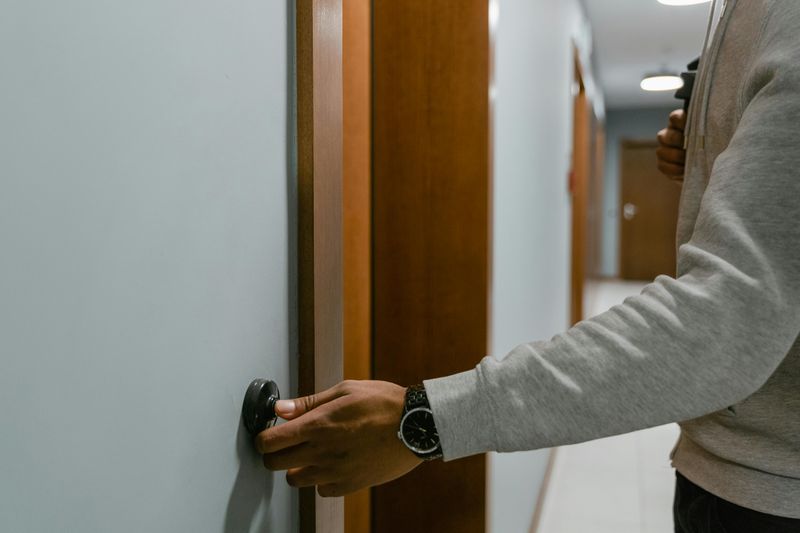10 Signs You’re More Introverted Than You Think

Many people believe introverts are just shy or antisocial, but that’s not the whole story. Introversion is actually about how you recharge your energy and process the world around you. You might be surprised to learn that some of your everyday habits and preferences are classic introvert traits, even if you consider yourself outgoing or social.
1. Social Events Drain Your Battery

After spending time at parties or group gatherings, you feel completely wiped out. Your friends might be ready to hit another event, but all you want is your bed and some quiet time.
This exhaustion happens because introverts use up mental energy when socializing. Unlike extroverts who gain energy from crowds, you need solitude to refuel. Even fun events can leave you feeling drained.
Needing recovery time after social activities doesn’t mean you didn’t enjoy yourself. It simply means your brain processes social interaction differently, requiring peaceful moments alone to restore your energy levels and feel like yourself again.
2. Small Talk Feels Like Hard Work

Chatting about weather, traffic, or weekend plans feels incredibly awkward and pointless to you. You’d much rather skip the surface-level conversation and talk about something meaningful or interesting.
Introverts crave deeper connections and substantial topics. Spending energy on shallow exchanges feels wasteful when you could be discussing ideas, dreams, or real experiences. Your brain literally rebels against chitchat.
When forced into small talk situations, you might rehearse responses in your head or feel anxious. You’re not being rude or unfriendly—your mind just prefers quality conversations over quantity, making casual banter feel exhausting and unnatural.
3. You Prefer Texting Over Calling

Phone calls make you anxious, and you’d rather text someone a hundred times than pick up the phone. When your phone rings unexpectedly, your heart might even race a little.
Texting gives you time to think about your responses and control the conversation pace. Calls demand immediate reactions and feel more intrusive into your personal space. You can multitask while texting, but calls require full attention.
This preference isn’t about being antisocial or lazy. Written communication simply feels more comfortable because it allows you to express yourself thoughtfully without the pressure of real-time verbal responses and unexpected conversational turns.
4. Canceling Plans Brings Relief

When plans get canceled, you feel a wave of happiness wash over you. That concert, dinner party, or group outing suddenly becoming optional feels like winning the lottery.
You might make plans with genuine good intentions, but as the date approaches, dread starts building. The thought of staying home becomes increasingly appealing compared to going out and being social.
Extroverts often feel disappointed when events get canceled, but you experience the opposite reaction. This relief comes from your natural preference for downtime and solitude over stimulating social environments, even when you genuinely like the people involved.
5. You Need Alone Time to Think Clearly

Making decisions or solving problems works best when you’re by yourself. Group brainstorming sessions feel chaotic and overwhelming rather than helpful or productive.
Your brain needs quiet space to process information thoroughly. Constant input from others interrupts your internal thought process, making it harder to reach conclusions. Solitude allows your mind to wander and connect ideas naturally.
Extroverts often think out loud and benefit from bouncing ideas off others. You work differently—your best thinking happens internally, away from distractions and external voices. Alone time isn’t selfish; it’s essential for your mental clarity and decision-making abilities.
6. Large Groups Make You Invisible

In big group settings, you tend to fade into the background and observe rather than participate. You’re perfectly content watching conversations unfold without jumping in constantly.
Speaking up in large groups requires extra effort and courage. By the time you formulate your thoughts, the conversation has usually moved on. You prefer contributing in smaller settings where you can be heard.
This observer role doesn’t mean you’re boring or have nothing to say. Introverts process internally before speaking, and large groups move too quickly for that style. You shine in one-on-one or small group conversations where thoughtful exchange happens.
7. Weekends Alone Sound Perfect

Your ideal weekend involves minimal social obligations and maximum personal time. Reading, watching shows, pursuing hobbies, or simply doing nothing sounds infinitely better than packed social schedules.
Friends might call you boring or antisocial, but you genuinely enjoy your own company. Solitary activities recharge your batteries and bring you happiness. You don’t feel lonely—you feel peaceful and content.
Extroverts fear missing out on social events and feel energized by constant activity. You experience the opposite—too many commitments leave you stressed and overwhelmed. Quiet weekends aren’t wasted time; they’re necessary self-care that keeps you balanced and happy.
8. You Rehearse Conversations in Your Head

Before important conversations, you script out what you’ll say. You might even practice different scenarios and responses in your mind, preparing for various directions the discussion could take.
This mental rehearsal helps you feel more confident and articulate. Spontaneous conversations can feel stressful because you haven’t had time to organize your thoughts properly. Planning ahead reduces anxiety.
Extroverts typically feel comfortable winging conversations and thinking on their feet. Introverts need processing time to communicate effectively. Your preparation isn’t overthinking—it’s how your brain works best, ensuring you express yourself clearly when the moment arrives.
9. You Notice Details Others Miss

While others focus on the big picture or social dynamics, you pick up on tiny details—changes in someone’s mood, subtle environmental shifts, or small inconsistencies others overlook completely.
Introverts tend to be highly observant because they spend more time watching than actively participating. Your quieter nature allows your brain to process more sensory information from your surroundings.
This attention to detail is a genuine strength. You remember conversations, notice when something’s wrong with a friend, and catch things that slip past more outwardly-focused people. Your observant nature makes you thoughtful, considerate, and deeply aware.
10. Surprise Visits Stress You Out

When someone shows up at your door unannounced, panic sets in. You need mental preparation before hosting or socializing, and surprise visitors disrupt your planned alone time.
Introverts value predictability and control over their schedules and personal space. Unexpected guests force immediate social interaction when you’re not mentally ready, which feels jarring and uncomfortable.
Your reaction isn’t about disliking the person—it’s about needing advance notice to shift gears mentally. Extroverts often love spontaneous visits, but you prefer planned interactions that let you prepare emotionally and ensure your social battery has enough charge.

Comments
Loading…